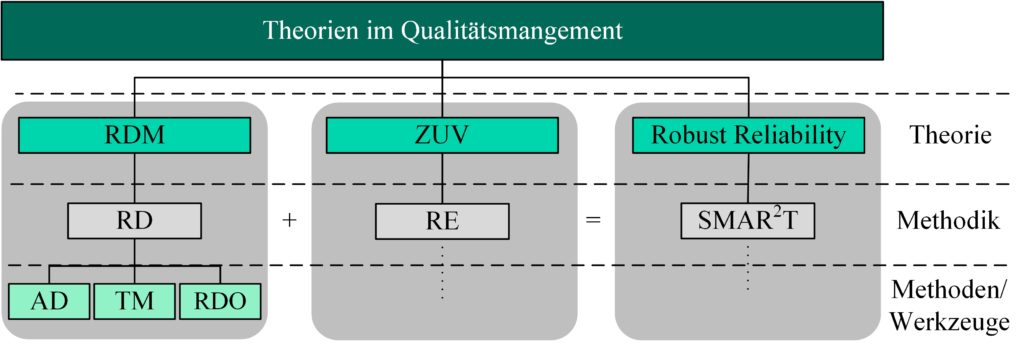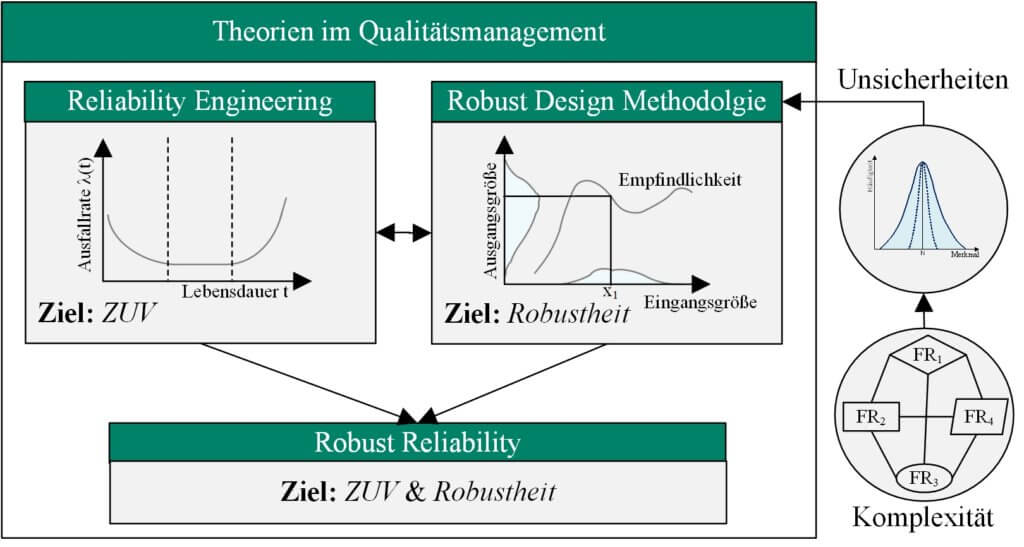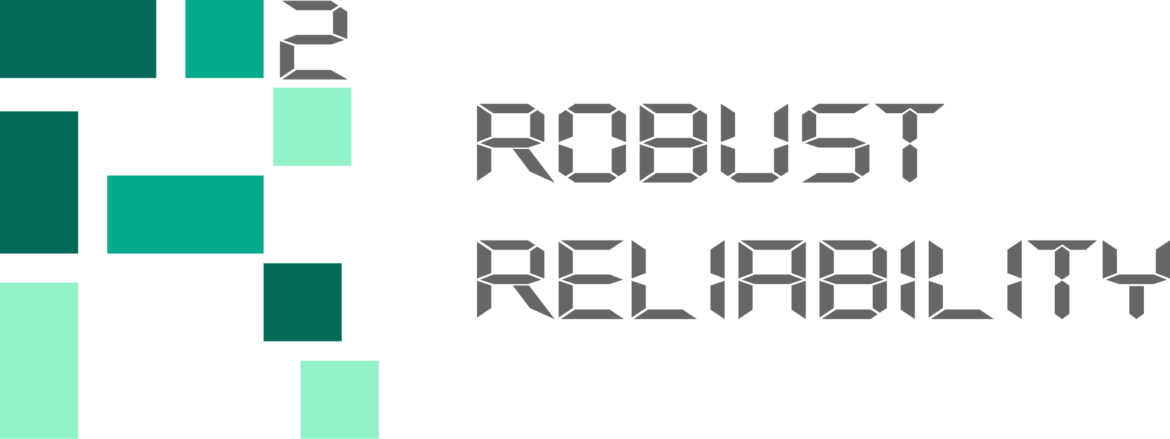Products or processes that meet existing quality requirements are generally described as reliable or robust. At the same time, however, the definitions of reliability and robustness do not fundamentally coincide. For science and practice, the question therefore arises as to what extent the development of robust products necessarily ensures the required reliability or whether a reliability analysis necessarily leads to robustness?
In order to specifically exploit the relationship between robustness and reliability, the advantages and potential synergies of both theories are discussed here. The development of a fundamental model for an integrated consideration of reliability and robustness also provides initial guidelines for the selection of suitable development methods and thus a suitable basis for future investigations.

Bild 1: Theorien im Qualitätsmanagement

Bild 2: Domänen im Qualitätsmanagement
Commonly, the terms Reliability and Robustness are used to describe products and processes, which are in accordance with the customer requirements and fulfil high quality expectations. However, significant differences between the underlying definitions raise the questions how reliable robust products are and vice versa?
For a comprehensive understanding and to use existing synergies between both domains, this webpage discusses the basic principles of Reliability and Robust Design theory. The development of a comprehensive model will enable an integrated consideration of both domains in the future, will offer guidance for a systematic choice of corresponding methods and is thus aiming to pave the way for future research.

Figure 1: Theories of Quality-Management

Figure 2: Domains of Quality-Management


 Deutsch
Deutsch